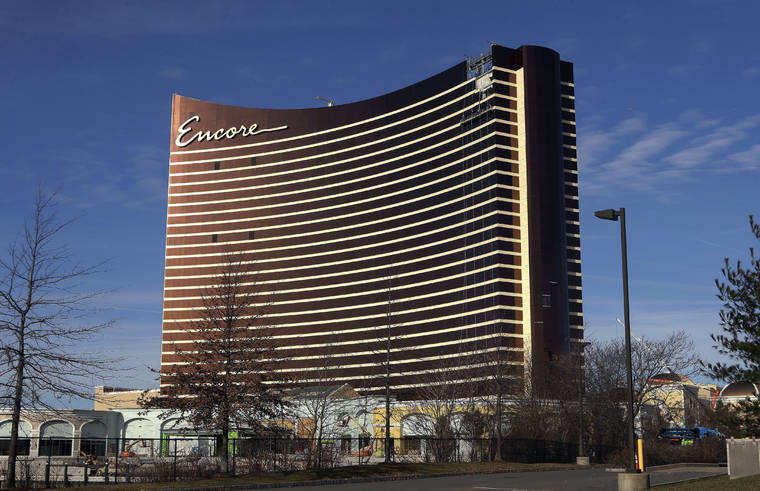BOSTON — Gambling regulators in Massachusetts on Tuesday levied a $35 million fine on Wynn Resorts but allowed the company to keep its state casino license and open its Boston-area resort as planned after executives failed to disclose years of allegations of sexual misconduct against company founder Steve Wynn.
The Massachusetts Gaming Commission also fined CEO Matthew Maddox $500,000 for his “clear failure” to investigate at least one misconduct complaint and required the Nevada company, which also owns properties in Las Vegas and Macau, to be subject to review by an independent firm selected by the state.
The commission, in its 54-page decision, said it was “troubled by the systemic failures and pervasive culture of non-disclosure” its investigators uncovered, but ultimately determined the evidence “does not rise to the level” of revoking the company’s license or calling for other major changes.
“While the Company has made great strides in altering that system, this Commission remains concerned by the past failures and deficiencies,” the decision reads. “Given our findings, it is now in the interest of the Commonwealth that the gaming licensee move forward in establishing and maintaining a successful gaming establishment in Massachusetts.”
The company said in a statement it’s reviewing the late evening decision and considering its next steps. Lawyers for Steve Wynn didn’t respond to emails seeking comment.
The long-awaited decision effectively clears the way for the opening of the company’s $2.6 billion Encore Boston Harbor resort in Everett in June. It comes after the commission this month released a more than 200-page investigative report, held three days of public hearings and deliberated for nearly four weeks on what company officials knew and did about the allegations.
Steve Wynn has denied the claims, saying his relationships with female employees had been consensual. He resigned as CEO last year after the Wall Street Journal first reported on the allegations.
Nevada regulators, after an investigation similar to Massachusetts’ earlier this year, levied a $20 million fine on the company but also allowed it to retain its casino license.
Regulators in both states were focused on how long company officials were aware of the allegations and how they responded, rather than the truth behind the claims.
In Massachusetts, gambling investigators found company officials were aware of many of the allegations but failed to report them to internal investigators or take other steps mandated in the company’s sexual harassment policies.
They also found Wynn officials failed to disclose settlements paid out to Steve Wynn’s accusers during their initial application for a state casino license. Among them was $7.5 million Steve Wynn personally paid in 2005 to a former salon employee who alleged she’d become pregnant after Wynn raped her.
Massachusetts regulators also found Wynn executives were aware but didn’t disclose at least three other complaints casino massage therapists brought against Steve Wynn as the company was being vetted by the state from 2013 to 2014.
Wynn Resorts has argued the company has fundamentally changed since the scandal.
Every top executive that actively covered up or failed to act on the allegations has been fired. The board of directors saw an infusion of new members, including three women, and new sexual misconduct policies have been instituted, such as the creation of an oversight panel to review sexual harassment claims led by a former Boston police commissioner.
But Gaming Commission members, during their April hearings, directed pointed questions at Maddox, who has been with the company since its founding and is a close ally of Steve Wynn.
Commission members criticized Maddox for authorizing spying on employees named in The Wall Street Journal’s story, but not actually investigating the sexual misconduct claims. And, when asked by commission members to name at least one of the company’s new sexual harassment policies, Maddox wasn’t able to.
Maddox acknowledged he should have informed regulators about the allegations in early 2018 since company officials were aware of The Wall Street Journal’s reporting weeks prior to publication.
He also testified he’d been aware of a 2008 settlement as the company’s then-chief financial officer, but maintained he was told the payment was to help a financially struggling employee.
And Maddox told regulators he was also aware of at least one of the complaints made by spa workers at Wynn Las Vegas about Steve Wynn’s conduct during massages. As company president at the time, he said he told the then-president of the casino to tell Steve Wynn to discontinue the behavior.


